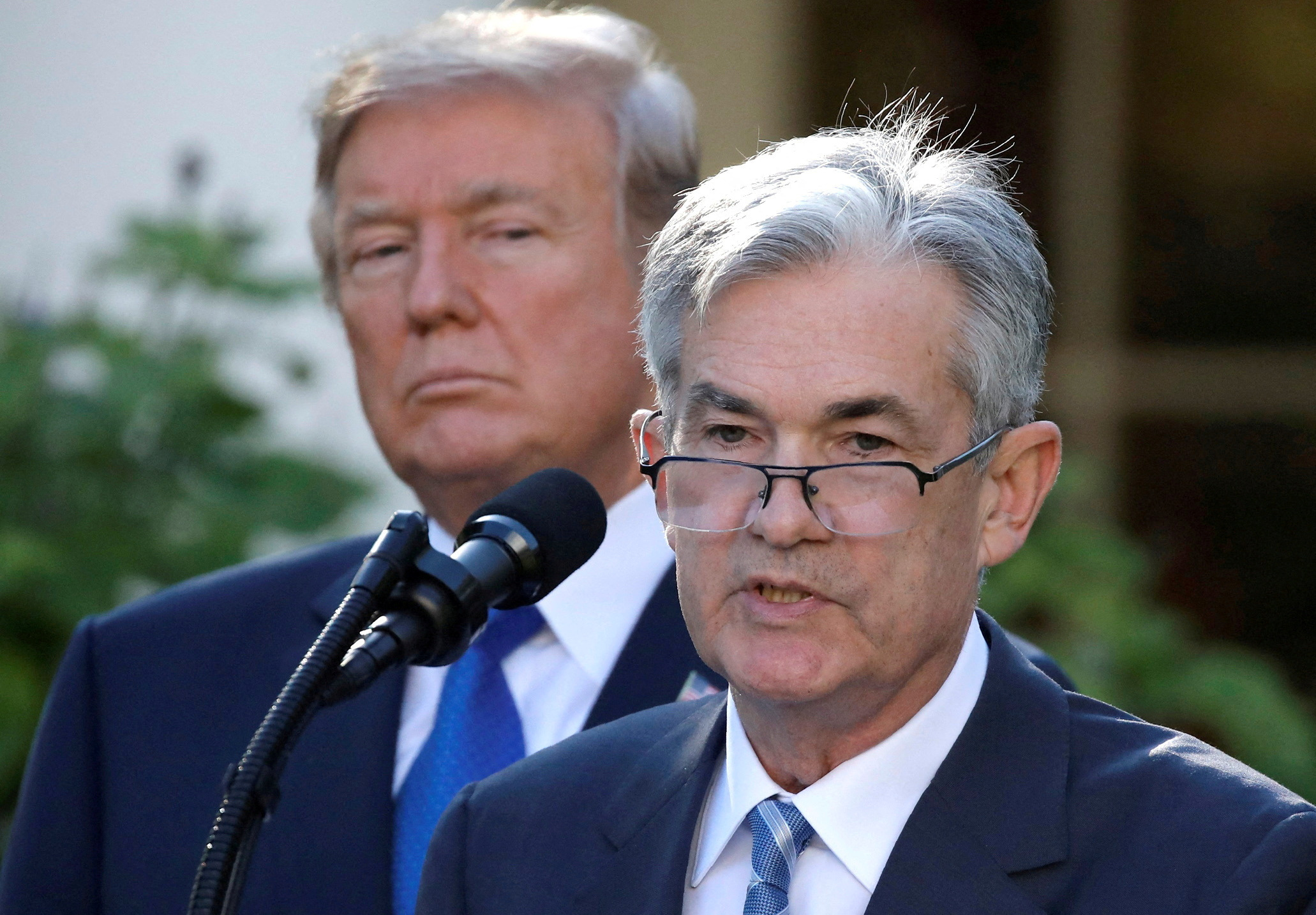On Chicago’s Morning Answer, investment firm CEO James Fishback made a compelling case for both fiscal accountability and economic strategy in a wide-ranging conversation with Dan Proft and Amy Jacobson. From calls to fire Federal Reserve Chairman Jerome Powell to reviving the populist idea of “D.O.G.E. stimulus checks” for taxpayers, Fishback laid out a vision for reshaping U.S. monetary and budgetary policy—Trump-style.
Powell’s Job on the Line?
Recent speculation around Donald Trump’s intentions to fire Jerome Powell if he doesn’t lower interest rates gained new traction last week when National Economic Council Director Kevin Hassett said the administration is examining the legal authority to do so. Fishback strongly backed the idea, citing Powell’s “three-strike record” on inflation, interest rates, and political neutrality.
“Jerome Powell has made mistake after mistake,” said Fishback. “He kept rates at zero even as inflation spiked past 5%, waited nine months before lifting a finger, and then made an inexplicable cut right before the last election. If he worked at a McDonald’s and made these errors, he would’ve been fired. Why should the Fed chair be any different?”
Fishback also criticized Powell for allegedly politicizing his role—most notably, speaking on racial inequality during official Fed briefings and giving inconsistent signals on monetary policy depending on who holds the presidency.
Can Trump Fire Powell?
The legal question hinges on the definition of “for cause” removal laid out in the Federal Reserve Act. While Powell isn’t an at-will employee, Fishback argued that repeated economic misjudgments and partisan behavior constitute ample grounds for dismissal.
“The president can fire the Treasury Secretary and the Defense Secretary. He should be able to fire the Fed chair, too,” he said. “We’re not talking about a coup—we’re talking about holding someone accountable for dereliction of duty.”
Who Could Replace Powell?
If Powell is ousted, Fishback suggested economists like Stanford’s Kevin Warsh or the renowned John Taylor as worthy successors—individuals with established records of monetary competence. He emphasized that the next Fed chair should not be a political ideologue, but someone focused on data, not narrative.
Trump’s Push to Cut Rates: A Justified Move?
While Powell has kept rates steady in early 2025, Fishback believes it’s time to move.
“Inflation is at its lowest point in four years. Central banks in Europe, Canada, and the UK are cutting rates. Powell is the outlier,” Fishback explained. “If Kamala Harris were president, Powell would’ve already cut rates three times.”
He framed Trump’s call for cuts not as a political stunt, but a rational response to shifting economic conditions—especially amid a realignment of trade policy and deregulation.
A “D.O.G.E.” Dividend for Taxpayers
Beyond the Fed, Fishback also revisited his signature idea from 2023: a taxpayer rebate tied to government savings identified by the Decrease Obsolete Government Expenditures (D.O.G.E.) task force, a Trump-era initiative designed to root out inefficiencies.
Originally proposed as a $5,000 check tied to $2 trillion in savings, the rebate would be proportional to actual cuts made. Even if savings fall short, Fishback believes it’s still worth it.
“If we save $1 trillion, the check is $2,500. If it’s $500 billion, it’s $1,250. That’s still real money,” he said. “More importantly, it tells Americans: when the government stops wasting your money, you get some of it back.”
He also sees the D.O.G.E. check as an ongoing incentive for Americans to report government waste—turning citizens into watchdogs who have a personal stake in Washington’s efficiency.
A Philosophical Shift
Fishback emphasized that the check is more than a political gimmick.
“This isn’t about stimulus. It’s about accountability,” he said. “We want the public to see that if we can cut spending, we can reward the people who were overtaxed to begin with.”
He envisions the check becoming a biennial tradition—an ever-present reminder that the government works for the taxpayer, not the other way around.
Fishback’s interview offered a striking look at the kind of economic populism likely to shape a second Trump term: bold leadership at the Fed, concrete rewards for taxpayers, and a no-nonsense approach to cutting bureaucracy.
Whether or not Powell keeps his job—or whether D.O.G.E. checks become reality—Fishback made one thing clear: “If Washington gets its act together, Main Street should be the first to benefit.”





